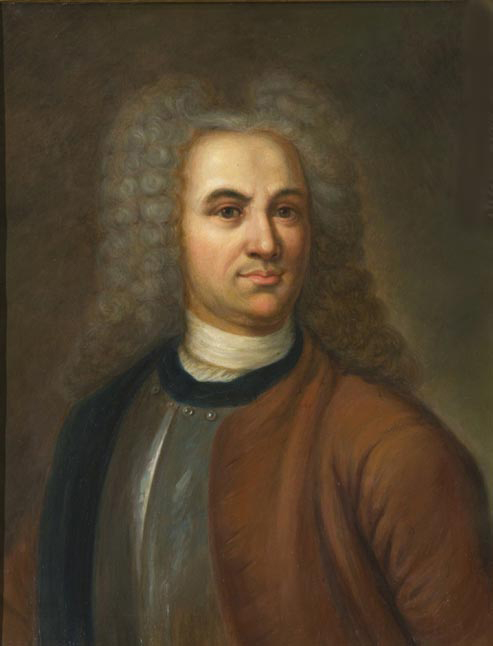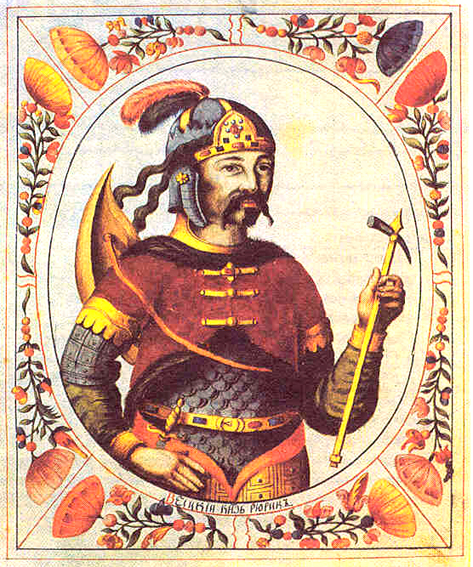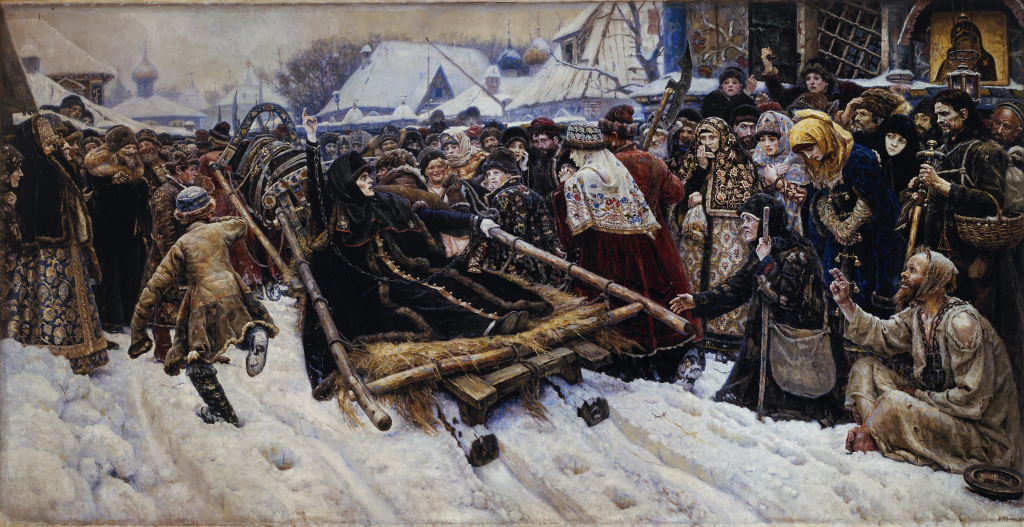
Vasily Tatishchev was a prominent Russian statesmen, famous as an author of the first more or less complete Russian history and a founder of three cities – Stavropol-on-Volga (Tolyatti), Yekaterinburg, and Perm.

Vasily Tatishchev was a prominent Russian statesmen, famous as an author of the first more or less complete Russian history and a founder of three cities – Stavropol-on-Volga (Tolyatti), Yekaterinburg, and Perm.

He appeared to be quite fit for the task, and within short years extended the nation’s borders, incorporating nearby Slavic tribes. His blood successors ruled Russia till 1598, when yet another succession crisis triggered the Time of Troubles, which eventually resolved in the establishment of the new dynasty, Romanovs.
Rurik’s origins are not known (and the Norman Theory has been disproved), but there are many people living now who claim their descendance from Rurik, and the DNA analysis of most of them confirms the same common ancestor who lived in the 9th century AD. That more or less proves that Rurik was a historical figure, indeed.

Raskol happened in the mid 17th century when Russian Orthodox Church reform led to the split between the new official church and the majority of the population, producing so called Old Believers movement and resulting in the centuries of oppression against it.
Unlike somewhat similar religious divide of 16th century between Catholics and Protestants in the Holy Roman Empire which after their civil war resulted in a kind of equilibrium and subsequent Cuius regio, eius religio agreement, Russian Raskol resulted in the full victory of the new version of religion. After historically short time it was almost fully adopted by the majority of Russian elites, while common folk en masse just pretended to comply, and a sizeable chunk of population (up to 20% or even more) actively opposed the new church.
All three biggest Russian peasant uprisings of Stepan Razin (17th century), Kondratiy Bulavin and Emelyan Pugachev (both 18th century) had a pronounced Raskol component. Some historians argue Raskol was the major reason for all those uprisings. Over the centuries Russian Empire moved from the fierce repressions against Old Believers to tolerating them, mostly for fiscal and economical reasons, but the divide never went away completely.
The influence of Raskol on the Russian history is enormous, and it lasted till Soviet times. When bolsheviks started to destroy churches, most people supported this and took part in it – not because of overwhelming support for bolshevicks, but because those churches were hated official churches of the forcibly imposed “new” religion. It was a retaliation for almost three hundred years of repressions. And this probably was the last bit of Raskol influence, this comeback followed by the dozens of years of state atheism finally stopped the fight, at least in its vicious forms.
This topic still causes very heated debates, both in Russia and abroad. The amount of lies injected here is probably the largest of all historical topics on Earth.
Facts to remember though is that under Stalin’s rule the USSR became the World superpower and won the biggest war in the history of mankind.
Many people believe that bolshevik revolution deposed the Tzar. Nothing can be further frome truth, and it is easily verifiable just by checking any historical source with dates. Tzar has been deposed in February 1917 by liberal revolution, and bolshevik revolution happened to happen more than half a year later, in October…
Widely regarded as the bloodiest tyrant of his time, in reality Ivan The Terrible killed times if not orders less people than his British or French counterparts. Even his nickname has been distorted in English, as the correct translation of Russian Грозный is Formidable.
Formulated in 19th century by German historians employed by Romanov dynasty, this theory states that Russia has been founded by Normans (Varangians) in 9th century AD and the first Russian ruler Rurik was a Varangian.
This theory became a mainstream in 20th century, moving into 21st century it is causing more and more questions. It’s main problem is that it is based on a single chronicle – The Tale of Bygone Years or The Primary Chronicle, whose authenticity is not proven.
The advent of modern DNA science allowed to test Rurik’s descendants DNA and according to Prof. Klyosov it showed that Rurik was not a Scandinavian, which effectively renders this theory obsolete.
The major periods and events in Russian history that influenced it future development